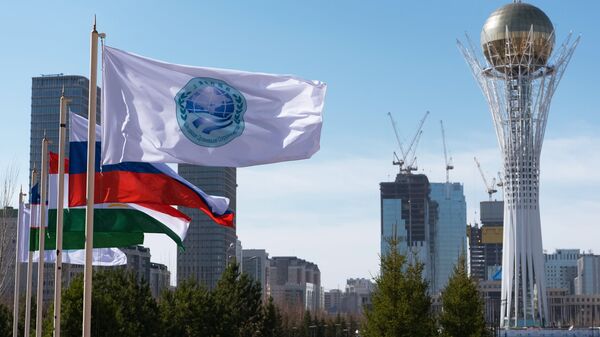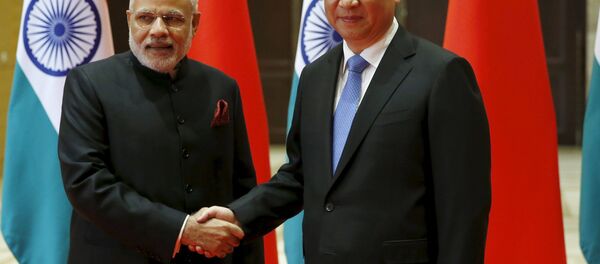"At the current stage of the SCO's development there is a need to further strengthen its structure. Military and defense cooperation is evidence of the close cohesion of the SCO, as well as an important measure and indicator of the effective functioning of the organization. For example, in NATO and the OSCE, in other structures, there are close economic and security ties between the members."
Dr. Yang Danzhi also noted that the organization faces new challenges and threats today that require deeper cooperation.
"Every day, in the strategy of the United States and other Western countries, there is an increasingly obvious tendency to contain and oust China and Russia. At the end of last year, the US president, in his first national security strategy, called China a "strategic competitor and rival of the United States," and also a "revisionist power." SCO countries react to this by strengthening military cooperation.
While noting that defense and security cooperation is important, Dr. Yang Danzhi also pointed out that the SCO promotes peace.
"The SCO is not an offensive or an aggressive organization. The world could appreciate China's and the SCO's pacifist orientation, so strengthening defense cooperation within this organization should not cause global panic or new suspicions and hostility."
Apparently, the strengthening of the military component of the SCO will be one of the main focal points of the organization under China's chairmanship. Observers in this regard drew attention to the fact that on the eve of the meeting with the defense ministers of the SCO member states, President Xi Jinping placed high hopes on cooperation in the field of defense and security. Obviously, we are talking about an expansion of the scope of tasks dealt with by the organization — a transition from the fight against terrorism and extremism in the SCO to strengthening the defense capabilities and responding to common external threats.
The Chinese proposal will strengthen the role of the SCO as a new global player by increasing the level of cooperation in the field of defense, believes deputy director of the Institute of CIS countries and head of the department of Eurasian integration and development of the SCO, Vladimir Evseev. This is a prompt response to the situation in the world:
Taking into account the accession of Pakistan and India to the SCO and the expansion of its areas of cooperation, Russian Defense Minister Sergei Shoigu noted that it is necessary to accelerate the establishment of a regulatory framework for military cooperation. He actually supported the proposal of China saying, that it was time to intensify the interaction of the military departments of SCO countries to ensure overall security. The minister believes that special attention should be paid to the rapid exchange of information, the study of the experience of countering terrorism and maintaining close contacts through the general staffs.
Sergei Shoigu noted that Daesh militants, after their defeat in Syria and Iraq, are moving to Central and South-East Asia. There they are creating new terrorist cells. The minister suggested that SCO partners fully take into account the combat experience that Russia gained in Syria during the next joint anti-terrorist exercises, called the "Peace Mission," that will be held in August in Russia.
These exercises will be the first after the expansion of the SCO and the announcement of new areas of cooperation, namely in defense, at a meeting in Beijing. So, they will be considered by military experts not only as anti-terrorist drills, but also as one of the first practical steps to implement the Chinese proposal to enhance the level of cooperation in the field of defense. At the meeting in Beijing it was also noted that a new mechanism for cooperation in the field of defense and security has already been launched. This is a working group of military advisers of SCO member states. Specialist Vladimir Yevseyev explained to Sputnik that it will be engaged in planning and coordinating joint actions to counter existing and future threats.
The opinions expressed by Dr. Yang Danzhi are of author's own and do not necessarily reflect the position of Sputnik News.




